SUMMARY
This is AI generated summarization, which may have errors. For context, always refer to the full article.
![[OPINION] The biggest immigration issue facing Fil-Ams in 2020](https://www.rappler.com/tachyon/2020/08/filam-migration-640.jpg)
Before the pandemic, when we could still play basketball, I hooped with an old Filipino who said that there are only 3 stories about how Filipino-Americans came here. You were either military, a professional, or came through family. While it’s rare not to hear Filipino dialects spoken if you are anywhere near a Navy base or hospital system in America, the majority of Fil-Ams can trace their roots to family-based immigration, meaning that somewhere along the line of their family’s history, someone’s US citizen spouse, parent, adult son or daughter, or sibling, or their spouse or parent with a green card, filed a petition to bring them here to America.
As the 2020 election approaches, the biggest immigration issue facing Filipino-Americans is how they want future generations to remember their choice – one that will impact the Filipino-American population today and through history. The two major parties have made their opposing positions clear, and in classic Filipino style, there’s even a nuisance candidate whose candidacy is designed to siphon young votes via celebrity name recognition.
Coming from a socially conservative motherland and being disproportionately religious compared to other ethnic groups, Filipino-Americans have traditionally leaned Republican, with every Republican presidential candidate before 2008 receiving a majority of the Fil-Am vote. However, Republicans have not reciprocated, especially under this administration. The MAVNI program, which allowed non-immigrants to join the US military if they had certain needed special skills (including medical) expired in December 2016. Less than a week after Donald Trump took office in January 2017, he issued an executive order on immigration that led to the termination of an immigration program for Filipino World War II veterans and their immediate families. In June 2019, his administration took steps to end parole-in-place, a way for active, reserve, or veteran military to apply for forgiveness for undocumented spouses, parents, or children based on their service.
More recently, under the cover of the pandemic, a pair of executive orders issued over Trump’s gigantic scrawled signature in April and June of 2020 further choked off other avenues Filipinos use to immigrate. The long lines in front of the US embassy on Roxas Boulevard disappeared, as most consular processing of Filipino immigrants through the US embassy was suspended, along with the processing of non-immigrant visas for tourists or students. While spouses and minor children of US citizens were exempted, the spouses and children of Filipino green card holders were blocked from reuniting with their legal permanent resident petitioners. A long-held dream of immigration restrictionists came true, as the entry into the US of parents, adult sons and daughters, and siblings of US citizens was suspended as well. People who had been waiting decades to reunite with their Fil-Am US citizen relatives found their separation extended indefinitely.
In June, the restrictions on family-based immigration were extended, along with new restrictions on H, J, and L visas used by Filipinos and other immigrants to come to the US in H-1B specialty occupations (such as doctors, nurses, engineers, programmers, lawyers, mathematicians, scientists, or even fashion models), as L-1 managers or employees with specialized knowledge transferred from an international branch of a multinational to a US branch, or as J-1 au pairs, medical students, doctors, nurses, hotel management interns, or cultural exchange visitors. Spouses and children of any of the above were blocked from entering the US too, meaning the only Filipinos that weren’t already US citizens or green card holders that could enter the US were tourists, students, or maybe a few ship or airline crew who were stranded by the pandemic.
Taking advantage of the general public’s lack of detailed knowledge of immigration law, these executive orders exempted physicians, nurses, and other healthcare professionals necessary to fight the COVID-19 virus, but only those coming on approved green card petitions. While it is technically possible for a hospital, laboratory, or other employer to directly sponsor Filipinos for green cards without first having a working visa, it is exceedingly rare for this to happen without the person already being in the US and working for them in a different status such as the ones listed above.
This, of course, doesn’t even take into account the effects of this administration’s bumbling response to the pandemic, which has caused the untimely deaths of many Fil-Am nurses, doctors, aides, orderlies, and other personnel, and those of lolas, lolos, titos, and titas. The push to disregard science and push businesses and schools to prematurely reopen will have scary but easily foreseeable consequences that will further impact Filipino families, especially those with healthcare professionals as their indispensable breadwinners.
What can Filipino-Americans do to change this dark, twisted potential future? We can vote for the party that wants to right the cruel wrongs of the Trump administration and bring the US immigration system into the 21st century. A unity task force of staffers from both the Joe Biden and Bernie Sanders campaigns has already released proposals for immigration reform within the first 100 days of a Biden presidency.
Democrats would end the fabricated “national emergency” that the Trump administration has used (in traditional politician style familiar to Filipinos) to justify stealing funds from the US military for a big, beautiful, useless construction project, and decrease funding for programs that waste US taxpayer money to capture and detain individuals for minor violations of legal status. They would reverse Trump-era policies that prevent people from seeking refuge in the US from gang, domestic, and anti-LGBTQ violence, and increase visas for victims of trafficking and other heinous crimes that the current administration has been cutting. They would protect the spouses and children of veterans and prevent immigration law enforcement officers from terrorizing immigrants in safe spaces such as schools, houses of worship, healthcare facilities, other government offices, or while exercising their Constitutional rights to peaceful protest.
In line with Filipino values, Democrats believe that family unification should be a guiding principle for immigration policy. This includes proposing legislation to end family separation by treating spouses and children of green card holders as immediate relatives (who don’t need to wait for a visa number) like spouses and children of US citizens, and to eliminate 3- and 10-year bans for those who merely overstayed their visas. They would ensure that same-sex couples and their children receive equal treatment from the immigration and naturalization system, and reaffirm America’s commitment to family-based immigration.
For professionals, Democrats would increase and improve the pathways for immigration, allowing cities and states to petition people for green cards, and fast-tracking the process for essential workers such as healthcare workers. They want a return to an America that attracts and keeps talent from all over the world, and end the freeze on consular processing and new green card applications. Once people become immigrants, a Democratic administration would provide more funding for social services to help immigrants and their families adjust to the US.
As a Filipino-American who lives in a battleground state and loves both nations that I call home, the choice seems easy to me, and I hope to encourage fellow Fil-Ams to make the easy decision between more of the same anti-immigrant rhetoric and restrictions or the new normal of a better future, not just for future generations of Filipino-Americans, but for America itself. – Rappler.com
Jath Shao is a lawyer with offices in Cleveland, Chicago, New York City, and Bonifacio Global City. He practices all types of US immigration law, including family-based immigration, employment- or business-based petitions, humanitarian applications, and removal defense. He also practices criminal law, labor and employment law, personal injury, family law, intellectual property and trademark law, and general business law, mostly for immigrant clients.
Visit lawfirm4immigrants.com or email Jath at jath@lawfirm4immigrants.com for any inquiries, questions, or consultations.
Add a comment
How does this make you feel?
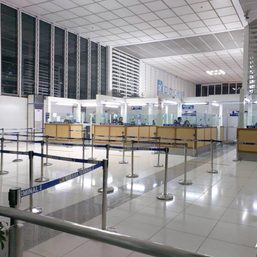
![[Just Saying] Reasons the new travel regulations are flawed](https://www.rappler.com/tachyon/2023/08/TL-travel-regulations-August-31-2023.jpg?resize=257%2C257&crop=281px%2C0px%2C720px%2C720px)

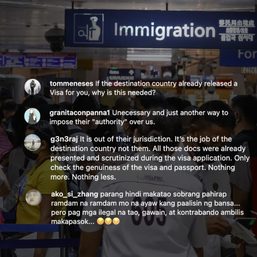
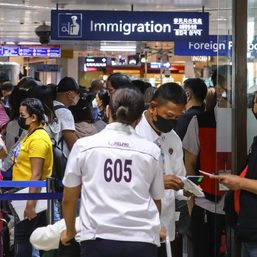




![[Edgewise] God didn’t save Trump from the bullet, immigrants did](https://www.rappler.com/tachyon/2024/07/thought-leaders-trump-immigrants-intervention-07242024.jpg?resize=257%2C257&crop_strategy=attention)
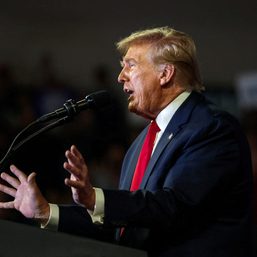



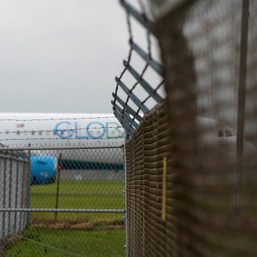
There are no comments yet. Add your comment to start the conversation.